8 In Lystra there sat a man who was lame. He had been that way from birth and had never walked. 9 He listened to Paul as he was speaking. Paul looked directly at him, saw that he had faith to be healed 10 and called out, “Stand up on your feet!” At that, the man jumped up and began to walk.
11 When the crowd saw what Paul had done, they shouted in the Lycaonian language, “The gods have come down to us in human form!”12 Barnabas they called Zeus, and Paul they called Hermes because he was the chief speaker. 13 The priest of Zeus, whose temple was just outside the city, brought bulls and wreaths to the city gates because he and the crowd wanted to offer sacrifices to them.
14 But when the apostles Barnabas and Paul heard of this, they tore their clothes and rushed out into the crowd, shouting: 15 “Friends, why are you doing this? We too are only human, like you. We are bringing you good news, telling you to turn from these worthless things to the living God, who made the heavens and the earth and the sea and everything in them. 16 In the past, he let all nations go their own way. 17 Yet he has not left himself without testimony: He has shown kindness by giving you rain from heaven and crops in their seasons; he provides you with plenty of food and fills your hearts with joy.” 18 Even with these words, they had difficulty keeping the crowd from sacrificing to them.
19 Then some Jews came from Antioch and Iconium and won the crowd over. They stoned Paul and dragged him outside the city, thinking he was dead. 20 But after the disciples had gathered around him, he got up and went back into the city. The next day he and Barnabas left for Derbe. — Acts 14: 8-20
So much of the Advent season is about preparing our hearts for the singularity of the eternal creator of the universe, the One who created everything and through whom all things are created, the First and the Last, the One who is outside of space and time arriving within the space of our lives and walking in our present moment. It is exactly this type of event that plays out in Lystra as the apostle Paul being full of the Holy Spirit enters the city and begins to teach and preach. A lame man who has never known the freedom and feeling of being able to walk is able to lock eyes with Paul as he is speaking and receive healing. We aren’t told how Paul is able to know that this man has the faith needed to receive healing, but we do know that Paul says that it is because of the faith that is immediately evident in this man that he is able to be healed. A man who has never walked is immediately able to jump up and walk and the result is pandemonium.
This healing is miraculous, even by modern standards and the effect is immediate. The crowd is emotionally moved and begins to bring wreaths and bulls to sacrifice to Paul and Barnabas, calling them Zeus and Hermes. It seems that a local legend that Zeus and Hermes had once visited the city in disguise and only an old couple recognized them may have fueled the response that Paul and Barnabas received. The expectancy of a visit from these gods fuels the excitement of the crowd and leads them to worship Paul and Barnabas. Certainly from his past as a Jewish persecutor of the early church Paul knew where this response from the crowd was probably headed and he worked in vain to correct their error. It wasn’t long though before Jews who had followed Paul from Antioch and Iconium were able to finally take command of the crowd and have Paul stoned to death.
It seems that when God moved in Lystra everyone found what they were looking for. The lame man found healing, the Gentiles found Zeus and Hermes and the Jews found justice against a blasphemer that they had been pursuing. The Holy Spirit moved in the midst of the people of Lystra. But if we’re not careful we’ll miss the message, because it’s not found in Lystra, but outside the city. Paul gives us a clue in his message to the crowd just before being stoned to death. The Good News of the Gospel is that we are free from worthless things, all the bulls and wreaths that we can produce, all the healing we can receive, all of the justice that we can carry out miss the point of Advent. It is not about what we want, it is about who He is. If our hearts desire is not Him, then whomever can produce our hearts desire we will worship. If all we want is healing, or food, or prosperity, or justice or even religion, then we have set ourselves up to miss God incarnate when He arrives.
He is the Living God, He is Here, He is Now and He will live and breathe and move within us and among us if we are prepared to receive Him. Out of His abundant grace He has provided us with our prosperity, with food for our stomachs and joy in our hearts. But these things must not be perceived to have been earned or they will corrupt our vision of who He is. We cannot conceive of God, this is why He had to be conceived as one of us. The miracle of Lystra is found outside the city with the broken body of Paul who has been stoned and his body discarded. The miracle of a lame man rising and walking earlier in the city pales in comparison to the miracle witnessed by the disciples who witness Paul’s broken body rising and walking outside Lystra back into the city.
Only those who are pure in heart are even there to receive it. For Paul blind faith is transformed into rock solid belief as he receives supernatural healing. For his disciples an understanding that all we bring to God are open minds and hearts ready to receive and give thanks for all things, because within all things, in places that we cannot possibly anticipate we will find Him and receive the knowledge of Emmanuel. If our hearts desire is to know that we are not alone then we will be prepared to receive the fact He is real, and He is risen.
The Advent blessing found in Lystra is the knowledge that the secret of life is not found in what we can receive, or even in what we can give, but simply in what we can know… that we are not alone. It is through experiencing this reality that God can begin to move in our lives and in our world. If our identity is rooted in His reality then old things begin to pass away and new things are born. The result is a faith that whispers to us the same thing it whispered to the disciples who witnessed this miracle, that “We must go through many hardships to enter the kingdom of God (Acts 14:22)”.
It is here where we find the message of the manger. This is where we find the poor, the hungry, the stranger, the imprisoned. This is where we experience and embrace persecution and trials and hardships. This is where we find a Gospel founded on rock that cannot be taken away because it is not founded on ourselves but on Him. This is where we can find peace in our prosperity because we know that it flows not from our own merit, but from Grace, and this grace is meant to be shared. Our healing is meant to bring others healing, our wealth is meant to bring others comfort, our justice is meant to be founded on our own understanding of the mercy that has been shown to us. If we are looking for Him, we will find Him when he shows up in the most unexpected places and in the most unexpected ways we will find delight in our Creator.


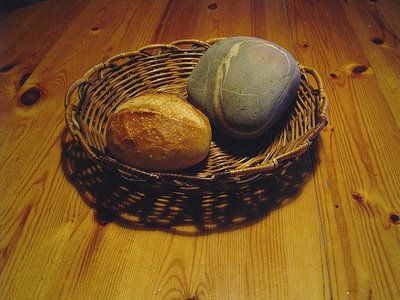
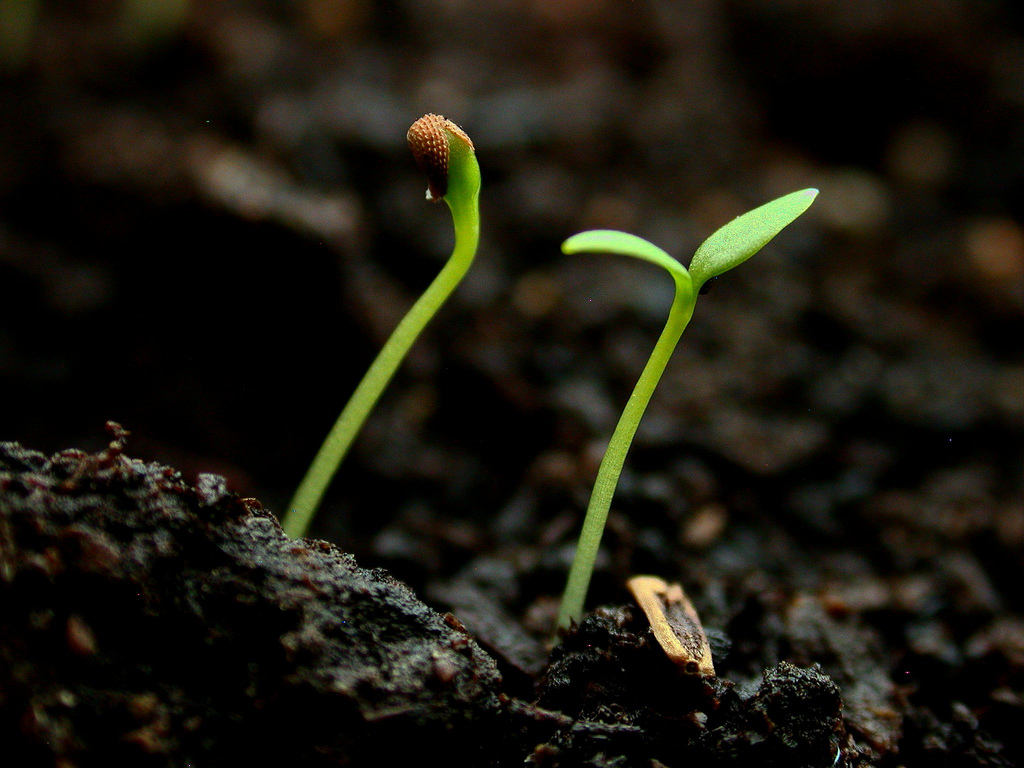
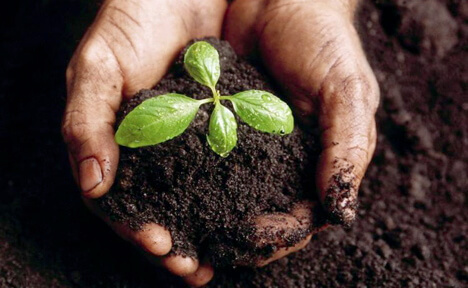
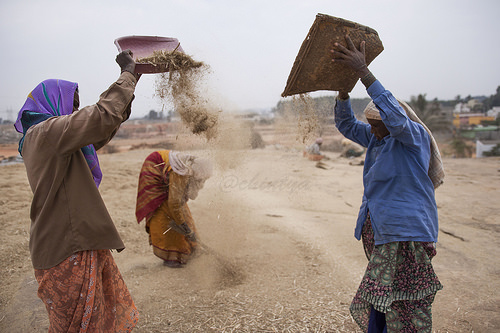
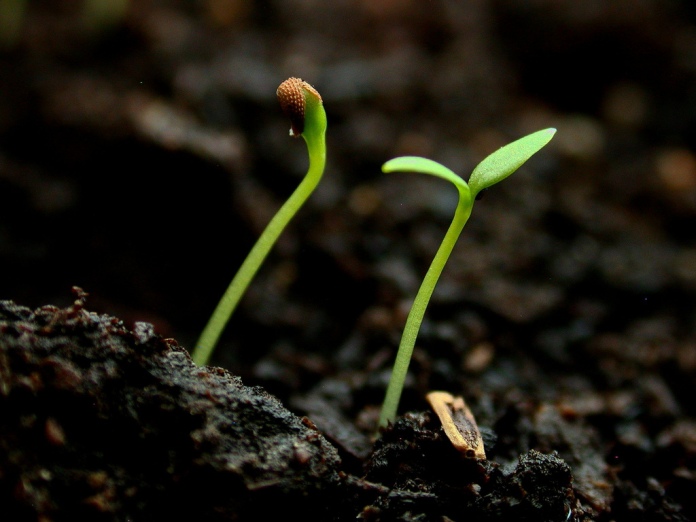 The Pharisees and Sadducees didn’t wander into the desert to pursue God or to find freedom, they were not trying to escape, they in fact were the jailers. They were the beneficiaries of an unjust system, one that claimed supreme power, morality and justice but one that John hinted actually possessed none of those. Entitlement causes us to assume that some are saved and some are judged, but humility reveals that we are all deserving of judgement, and all in need of saving. Entitlement causes us to remain dry and lifeless as dust and chaff, but it is repentance that moves our souls toward God, and it is the waters of baptism that prepare our hearts of stone to be soil ready to receive the kingdom.
The Pharisees and Sadducees didn’t wander into the desert to pursue God or to find freedom, they were not trying to escape, they in fact were the jailers. They were the beneficiaries of an unjust system, one that claimed supreme power, morality and justice but one that John hinted actually possessed none of those. Entitlement causes us to assume that some are saved and some are judged, but humility reveals that we are all deserving of judgement, and all in need of saving. Entitlement causes us to remain dry and lifeless as dust and chaff, but it is repentance that moves our souls toward God, and it is the waters of baptism that prepare our hearts of stone to be soil ready to receive the kingdom.


 I was going to take a break this week from writing on Matthew because I was on a backpacking trip to the Wilson Creek area of the Blue Ridge Mountains hiking the Harper Creek Trail. I was gone on Sunday, but a lesson from the upcoming chapter in Matthew slipped into my trip that I thought was worth writing down.
I was going to take a break this week from writing on Matthew because I was on a backpacking trip to the Wilson Creek area of the Blue Ridge Mountains hiking the Harper Creek Trail. I was gone on Sunday, but a lesson from the upcoming chapter in Matthew slipped into my trip that I thought was worth writing down.


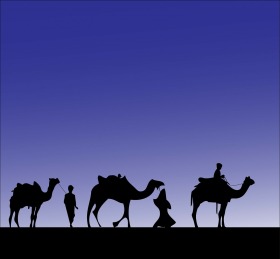 For 430 years Israel was captive in Egypt. It has now been 400 years again since the last minor prophet of Israel has walked the earth, the Spirit has been silent. But things are beginning to change, visions are being seen, angels are visiting men and magi from a far off land have left their home country to follow the signs that the Anointed, the King of the Jews is to be born. The clock is ticking down, in 30 years the time of serving in bondage to sin will be up and the new Exodus will begin.
For 430 years Israel was captive in Egypt. It has now been 400 years again since the last minor prophet of Israel has walked the earth, the Spirit has been silent. But things are beginning to change, visions are being seen, angels are visiting men and magi from a far off land have left their home country to follow the signs that the Anointed, the King of the Jews is to be born. The clock is ticking down, in 30 years the time of serving in bondage to sin will be up and the new Exodus will begin.